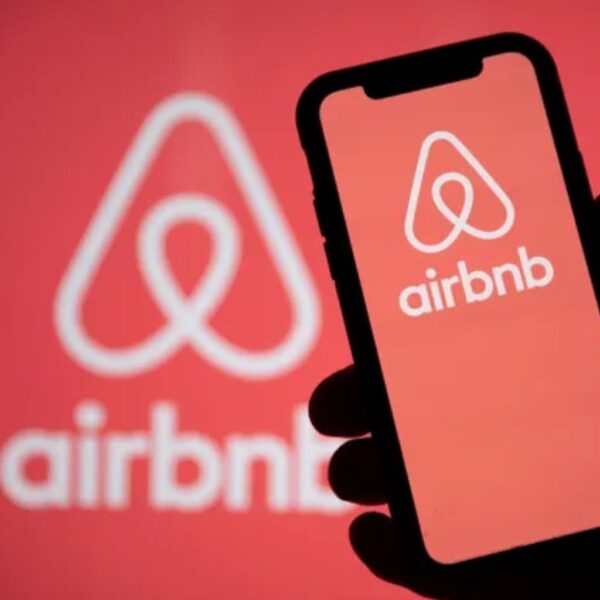Ghana’s Real Estate Boom: 3 Reasons Why Rental Properties are your Ticket to Financial Success
February 16, 2024
Ghana’s real estate sector is experiencing a remarkable boom, presenting investors with unprecedented opportunities for financial success. Among the myriad of investment options, rental properties stand out prominently, driven by factors such as the rise of Airbnb, the persistent housing deficit, and proactive government initiatives. Here’s a closer look at why rental properties, in particular, can be your key to prosperity in the flourishing Ghanaian real estate market.
1. Airbnb

Airbnb is a global web or online platform that makes short-term accommodation rentals easier. Airbnb statistics show that Accra is one of the eight fastest growing markets globally. According to AirDNA, a platform that offers data and insights about property rentals, it was recorded that there are 8,871 active Airbnb listings in Accra metropolitan. The average occupancy rate is 17% with an average daily rate of $55.5 and average monthly revenue of $2,129. One(1) bedroom apartments make up the majority of the listings (53%), followed by two (2) bedroom flats (25%).
Airbnb has had a positive impact on Ghana’s real estate market due to its ability to facilitate community-driven tourism and genuine travel experiences.
Over the past decade, the Airbnb market in Ghana has expanded significantly providing a wide range of services from cultural immersion to urban comfort and beachside retreats. Aside tourists. The growth of Airbnb has helped local hosts and communities. Airbnb has gradually gained traction in Ghana, serving both business and leisure travelers as well as locals looking for unique accommodation. Airbnb introduction in the Ghanaian market has significantly influenced the traditional rental industry.
Some of the notable impacts of Airbnb on the traditional long-term rental market include:
- Supply and Demand Dynamics: Listing your property on Airbnb offers property owners the unique advantage of tapping into both short-term and long-term rental markets. By leveraging Airbnb, property owners can access a diverse range of rental opportunities, from short stays to extended periods. This flexibility enables property owners to maximize revenue potential by accommodating both short-term guests and those seeking longer stays.
- Price Competition: With the presence of Airbnb, property owners can capitalize on the potential for increased profitability by offering both short-term and long term rental options. This flexibility not only expands revenue opportunities but also mitigates the risk of relying solely on one rental model.
- Flexibility for Landlords: Airbnb presents a strategic opportunity for landlords to diversify their rental income streams. Landlords can capitalize on the potential for increased profitability by offering both short-term and long-term rental options.
Anticipating the future, Ghana’s Airbnb sector appears to have promising opportunities for growth. In addition, technological and infrastructural developments may mitigate current issues and improve the country’s Airbnb experience overall. Stakeholders must take into account the possible long-term implications of Airbnb as it continues to change and influence Ghana’s rental industry.
2. Government Initiatives

Government initiatives play a pivotal role in shaping the landscape of rental properties, influencing both their significance and impact on society. These initiatives have exposed Ghana to the diaspora leading to influx of foreigners into the country.
Some of the initiatives by the government to attract expats are:
- The Year of Return Campaign
Investing in rental properties in Ghana presents a strategic opportunity, especially in the wake of successful initiatives like the Year of Return campaign. The campaign, launched in 2019 to commemorate the 400th anniversary of the arrival of the first enslaved Africans in America, drew significant attention to Ghana and invited the African diaspora to return. The success of this campaign, which attracted over 750,000 visitors and generated $1.9 billion in revenue, underscores Ghana’s growing appeal as a tourist destination and a potential hub for investment. As Ghana continues to position itself as an attractive destination for both tourists and returning members of the African diaspora, investing in rental properties can be a lucrative venture. The influx of visitors, coupled with the increasing interest in heritage tourism and cultural exchange, creates a steady demand for accommodation services.
- The Beyond the Return initiative
This 10-year plan builds on the success of the Year of Return campaign, aiming to strengthen the bonds between Ghana and the African diaspora across seven key pillars. The seven key pillars are such as Experience Ghana, Invest in Ghana, Diaspora Pathways to Ghana, Celebrate Ghana, Brand Ghana, Give Back to Ghana, and Promote Pan African Heritage and Innovation. Beyond the Return initiative serves as a compelling reason to consider investing in rental properties in Ghana. It does not only signal a long-term commitment to fostering closer ties with the African diaspora but also indicates a conducive environment for investment and tourism, which can translate into sustainable growth and returns for property investors.
- The Ghana Visa on Arrival policy
The implementation of the Ghana Visa on Arrival policy, which grants citizens of all African Union member states the ability to obtain a visa upon arrival for up to 30 days, represents a significant opportunity for investing in rental properties in Ghana. This policy fosters greater ease of travel and promotes regional integration within Africa. With increased accessibility for travelers from across the continent, the demand for short-term accommodation options such as rental properties is likely to rise. Visitors taking advantage of this policy may seek comfortable and convenient lodging during their stay, presenting a lucrative market for rental property owners.
These are some of the examples of how the government is trying to make Ghana a more attractive and welcoming destination for expats.
3. Housing Deficit

The housing deficit presents not just a challenge but also a golden opportunity for savvy investors. Housing deficit encapsulates the imbalance between the demand for housing and the available supply. Ghana’s housing deficit is a significant issue that has been a concern for many years. According to the 2021 Population and Housing Census, Ghana’s housing deficit has reduced by 33% since the year 2000, which is a remarkable achievement. The current estimated housing deficit of Ghana is 1.8 million. The result in the reduction can partly be attributed to the real estate upsurge, mortgage financing and an increase in residential structures during this period. Although the reduction in housing challenge is remarkably progressive, the current estimated housing deficit remains high, requiring a collaborative strategy from all stakeholders to resolve this matter.
One of the profound approaches by the Government to resolve this matter is the affordable housing project. In response to the affordable housing challenge, various organisations have made concerted efforts to increase the national housing stock. Although there are several notions arising from this solution implemented by the government, the peculiar argument raised is whether those units are affordable indeed. That is a topic for another day.
In brief, the result of the housing deficit is a substantial gap between the number of households seeking accommodation and the units available on the market. Due to urbanization, demand for residential properties remains consistently high. This sustained demand translates into reliable rental income for property owners, ensuring steady returns on investment.
CONCLUSION
The landscape of rental properties in Ghana, particularly through platforms like Airbnb, is evolving rapidly. Airbnb has not only provided additional income streams for property owners but also transformed the traditional rental market by offering greater flexibility and competition. Ghana still faces substantial challenges in meeting the growing demand for accommodation, especially in urban areas. However, government initiatives such as affordable housing projects and campaigns like the Year of Return and Beyond the Return positions Ghana as an attractive destination for both tourists and investors.
Looking ahead, Ghana’s rental property sector holds promising opportunities for growth, fueled by technological advancements, infrastructural developments, and continued efforts to attract both local and international visitors. However, stakeholders must remain vigilant and adaptable to the changing dynamics of the rental market.